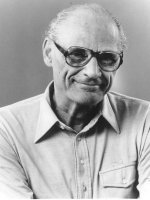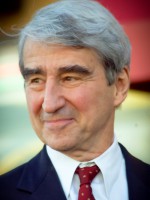Ken Burns is a Actor, Director, Scriptwriter, Producer, Director of Photography, Music Director and Cinematography American born on 29 july 1953 at Brooklyn (USA)

Kenneth Lauren "Ken" Burns (born July 29, 1953) is an American director and producer of documentary films, known for his style of using archival footage and photographs. His most widely known documentaries are The Civil War (1990), Baseball (1994), Jazz (2001), The War (2007), The National Parks: America's Best Idea (2009), Prohibition (2011) and The Central Park Five (2012)
Burns' documentaries have been nominated for two Academy Awards and have won Emmy Awards, among other honors.
Burns's academic family moved frequently. Among places they called home were Saint-Véran, France; Newark, Delaware; and Ann Arbor, where his father taught at the University of Michigan. Burns's mother was diagnosed with breast cancer when Burns was 3 and died when he was 11, a circumstance that he said helped shape his career; he credited his father-in-law, a psychologist, with a signal insight: "He told me that my whole work was an attempt to make people long gone come back alive." Well-read as a child, he absorbed the family encyclopedia, preferring history to fiction. Upon receiving an 8 mm film movie camera for his 17th birthday, he shot a documentary about an Ann Arbor factory. Turning down reduced tuition at the University of Michigan, he attended the new Hampshire College, an alternative school in Amherst, Massachusetts, where students are graded through narrative evaluations rather than letter grades and where students create self-directed academic concentrations instead of choosing a traditional major. He worked in a record store to pay his tuition.
Studying under photographers Jerome Liebling and Elaine Mayes and others, Burns earned his Bachelor of Arts degree in film studies and design in 1975. At 22, upon graduation, he and two college friends founded Florentine Films in Walpole, New Hampshire. He worked as a cinematographer for the BBC, Italian television, and others, and in 1977, after having completed some documentary short films, he began work on adapting David McCullough's book The Great Bridge, about the construction of the Brooklyn Bridge. Developing a signature style of documentary filmmaking in which he "adopted the technique of cutting rapidly from one still picture to another in a fluid, linear fashion [and] then pepped up the visuals with 'first hand' narration gleaned from contemporary writings and recited by top stage and screen actors", he made the feature documentary Brooklyn Bridge (1981), which earned an Academy Award nomination for Best Documentary and ran on PBS in the United States.
Following another documentary, The Shakers: Hands to Work, Hearts to God (1984), Burns was Oscar-nominated again for The Statue of Liberty (1985).
Source : Wikidata
Ken Burns

- Infos
- Photos
- Best films
- Family
- Characters
- Awards
Birth name Kenneth Lauren Burns
Nationality USA
Birth 29 july 1953 (71 years) at Brooklyn (USA)
Awards Emmy Award, Lincoln Prize
Nationality USA
Birth 29 july 1953 (71 years) at Brooklyn (USA)
Awards Emmy Award, Lincoln Prize
Burns' documentaries have been nominated for two Academy Awards and have won Emmy Awards, among other honors.
Biography
Ken Burns was born in 1953, the son of Lyla Smith (née Tupper) Burns, a biotechnician, and Robert Kyle Burns, at the time a graduate student in cultural anthropology at Columbia University in Manhattan. According to his official website, Burns was born in Brooklyn, New York City, New York, though some sources give Ann Arbor, Michigan, as his birthplace and others, including The New York Times, give both Brooklyn and Ann Arbor. Ken Burns's brother is the documentary filmmaker Ric Burns.Burns's academic family moved frequently. Among places they called home were Saint-Véran, France; Newark, Delaware; and Ann Arbor, where his father taught at the University of Michigan. Burns's mother was diagnosed with breast cancer when Burns was 3 and died when he was 11, a circumstance that he said helped shape his career; he credited his father-in-law, a psychologist, with a signal insight: "He told me that my whole work was an attempt to make people long gone come back alive." Well-read as a child, he absorbed the family encyclopedia, preferring history to fiction. Upon receiving an 8 mm film movie camera for his 17th birthday, he shot a documentary about an Ann Arbor factory. Turning down reduced tuition at the University of Michigan, he attended the new Hampshire College, an alternative school in Amherst, Massachusetts, where students are graded through narrative evaluations rather than letter grades and where students create self-directed academic concentrations instead of choosing a traditional major. He worked in a record store to pay his tuition.
Studying under photographers Jerome Liebling and Elaine Mayes and others, Burns earned his Bachelor of Arts degree in film studies and design in 1975. At 22, upon graduation, he and two college friends founded Florentine Films in Walpole, New Hampshire. He worked as a cinematographer for the BBC, Italian television, and others, and in 1977, after having completed some documentary short films, he began work on adapting David McCullough's book The Great Bridge, about the construction of the Brooklyn Bridge. Developing a signature style of documentary filmmaking in which he "adopted the technique of cutting rapidly from one still picture to another in a fluid, linear fashion [and] then pepped up the visuals with 'first hand' narration gleaned from contemporary writings and recited by top stage and screen actors", he made the feature documentary Brooklyn Bridge (1981), which earned an Academy Award nomination for Best Documentary and ran on PBS in the United States.
Following another documentary, The Shakers: Hands to Work, Hearts to God (1984), Burns was Oscar-nominated again for The Statue of Liberty (1985).
Best films
Usually with
Filmography of Ken Burns (20 films)
Actor
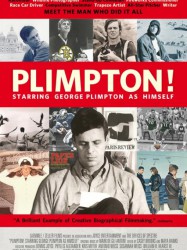 , 1h29
, 1h29Origin USA
Genres Documentary
Themes Films about writers, Films about journalists, Documentaire sur une personnalité
Actors George Plimpton, Ken Burns
Roles Himself
Rating71%





Plimpton! tells the story of writer, editor and amateur sportsman, George Plimpton. Starting with his getting kicked out of Exeter, the film follows Plimpton as he joins The Paris Review as its first editor and the creation of the "Art of Fiction" series.

Wordplay (2006)
, 1h34Directed by Patrick Creadon
Origin USA
Genres Documentary
Themes Films about language and translation
Actors Ken Burns, Jon Stewart
Rating73%





Director

The Roosevelts (2014)
Directed by Ken Burns
Origin USA
Genres Documentary, Historical
Themes Films about families, Documentary films about historical events, Documentary films about politics, Political films
Actors Paul Giamatti, Edward Herrmann, Meryl Streep, Peter Coyote
Rating87%






The Central Park Five (2012)
, 1h59Directed by Ken Burns
Origin USA
Genres Documentary, Crime
Themes Prison films, Documentary films about law, Documentary films about historical events, Documentaire sur une personnalité, Documentary films about cities, Films about capital punishment
Rating76%






The Dust Bowl (2012)
, 4hDirected by Ken Burns
Origin USA
Genres Documentary
Themes Documentary films about historical events
Actors Patricia Clarkson, Peter Coyote, Kevin Conway, Amy Madigan, Carolyn McCormick
Rating81%






Directed by Ken Burns
Origin USA
Genres Documentary
Themes Documentary films about historical events, Documentary films about nature
Actors Peter Coyote, Tom Hanks, Andy García, Josh Lucas, Eli Wallach, Campbell Scott
Rating85%






The War (2007 TV series) (2007)
Directed by Ken Burns
Origin USA
Genres War, Documentary, Historical
Themes Documentary films about war, Documentary films about historical events, Documentary films about World War II
Actors Keith David, Tom Hanks, Josh Lucas, Bobby Cannavale, Samuel L. Jackson, Eli Wallach
Rating89%





Le film est traité au travers de la vie de quatre villes américaines à l'époque du conflit :
 , 3h34
, 3h34Directed by Ken Burns
Origin USA
Genres Documentary
Themes Films about racism, Sports films, Martial arts films, Boxing films, Documentary films about sports, Documentary films about racism, Documentary films about law, Documentary films about historical events, Documentaire sur une personnalité, Le boxe anglaise
Actors Keith David, Samuel L. Jackson, Adam Arkin, Philip Bosco, Kevin Conway, Brian Cox
Rating82%






Directed by Ken Burns
Origin USA
Genres Documentary
Themes Transport films, Films about automobiles, Documentary films about historical events, Documentary films about technology, Road movies
Actors Tom Hanks, Keith David, Adam Arkin, Philip Bosco, John Cullum, Amy Madigan
Rating79%






Not for Ourselves Alone (1999)
, 3h30Directed by Ken Burns
Themes Feminist films, Documentary films about historical events, Documentaire sur une personnalité, Documentary films about politics, Political films
Actors Ronnie Gilbert, Carolyn McCormick, Kevin Conway, Sally Kellerman, Charles Durning, Adam Arkin
Rating79%






Thomas Jefferson (1997)
, 3hDirected by Ken Burns
Origin USA
Genres Documentary, Historical
Themes Documentary films about historical events, Documentaire sur une personnalité, Documentary films about politics, Political films
Actors Blythe Danner, Ossie Davis, Gwyneth Paltrow, Michael Potts, Sam Waterston, Philip Bosco
Rating76%





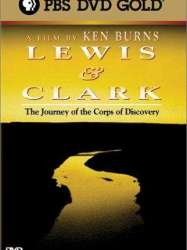
Directed by Ken Burns
Genres Documentary, Historical
Themes Documentary films about historical events
Actors Adam Arkin, Tantoo Cardinal, Kevin Conway, Sam Waterston, Hal Holbrook, Matthew Broderick
Rating84%






Baseball (TV series) (1994)
Directed by Ken Burns
Origin USA
Genres Documentary
Themes Sports films, Baseball films, Documentary films about sports, Documentary films about historical events
Rating91%





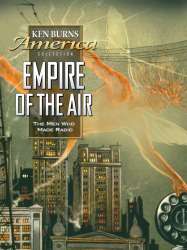 , 1h40
, 1h40Directed by Ken Burns
Origin USA
Genres Documentary, Historical
Themes Documentary films about historical events
Actors Jason Robards
Rating75%





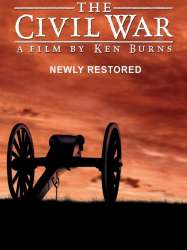
The Civil War (1990)
Directed by Ken Burns
Genres Documentary
Themes Documentary films about war, Documentary films about historical events, Political films
Actors Sam Waterston, Julie Harris, Jason Robards, Morgan Freeman, Garrison Keillor, Arthur Miller
Rating89%





"La guerre de sécession" est un film documentaire réalisé par l'Américain Ken Burns sur la guerre de Sécession. Le documentaire dure 11 heures, découpé en neuf épisodes. Episode 1 : La cause Episode 2 : L'impasse sanglante Episode 3 : Libres, à jamais Episode 4 : Un meurtre, tout simplement Episode 5 : L’enfer des combats Episode 6 : La vallée de l'ombre de la mort Episode 7 : Terre sanctifiée Episode 8 : La guerre, c'est l'enfer Episode 9 : Les meilleurs anges de notre nature
 Connection
Connection

